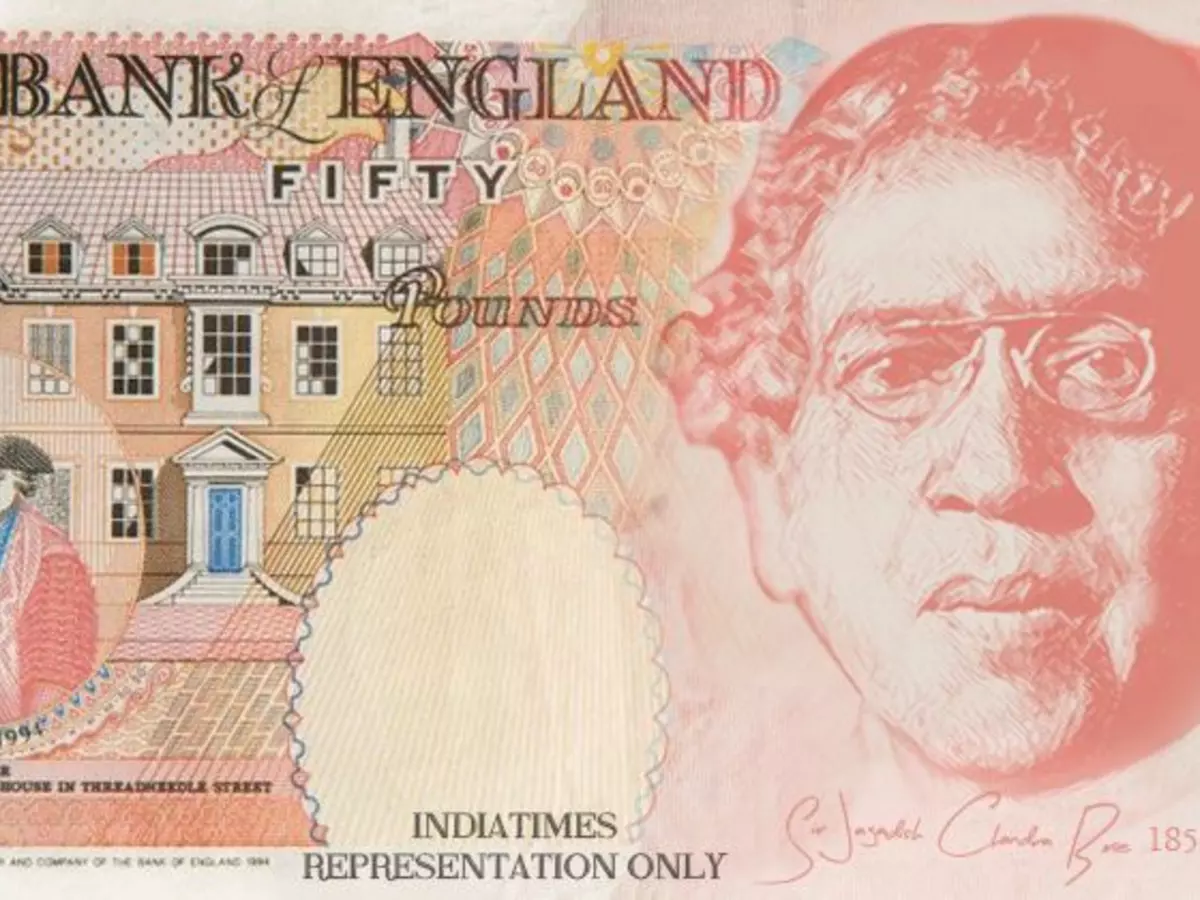New UK 50 Pound Note May Feature India's Sir JC Bose, Who Did Pioneering Work For Wi-Fi
The Bank Of England has announced it will be redesigning the 50 UK Pound currency note replacing it with a prominent name from the world of science. Surprisingly or unsurprisingly the name of Indian scientist Sir Jagadish Chandra Bose has been featured in the nomination list. Bose made indelible contributions towards the advancement of wireless communications.

The Bank Of England has announced it will be redesigning the 50 UK Pound currency note, replacing it with a prominent name from the world of science.
And surprisingly (or unsurprisingly?), the name of Indian scientist Sir Jagadish Chandra Bose has been featured in the nomination list. No kidding.

indiatimes
ALSO READ: Everything You Need To Know About Sir Jagadish Chandra Bose - The Forgotten Father Of Modern Wi-Fi
UK's Bank of England -- similar to India's Reserve Bank of India -- is currently inviting suggestions from people to have a fresh new face on its 50 pound currency note.
On their website, the bank had received close to 175,000 nominations by November 26, forcing them to publish a list of 114,000 nominations -- which also features Sir Jagadish Chandra Bose's name.
Why is this such a big deal
At first the subject of some dispute but it's now a scientific fact that Sir Jagadish Chandra Bose made indelible contributions towards the advancement of wireless communications leading to the development of modern day radio. Without the radio, there would be no wireless communications, and no -- GASP! -- Wi-Fi to latch onto on your smartphones and laptops.

JC Bose
Guglielmo Marconi is widely regarded as the inventor of modern day radio, since he successfully demonstrated transatlantic radio communications for the very first time in 1901, but Bose had demonstrated electromagnetic wave communications a few years earlier.
Bose never really expressed any interest in commercial telegraphy, encouraging others to use his research work. In fact, in 1896, he met Italian inventor Guglielmo Marconi, who had been developing a radio wave wireless telegraphy system for over a year and was trying to market it to the British post service. To his credit, Marconi has actually acknowledged the significance of Bose¡¯s work in his writing.
Despite his personal dislike of patents, Sir Jagadish Chandra Bose actually holds the patent for the first solid-state diode to receive electromagnetic waves, and created a number of now common microwave components.

wikimedia
Apart from being a physicist, Sir Jagadish Chandra Bose was also a polymath, biologist, biophysicist, botanist and archaeologist. He made some significant contributions to the world of plant biology and his invention, a crescograph, helped agricultural scientists devise better ways of effective crop cultivation.
There's obviously no dearth of British scientists who contributed immensely to our understanding of the world, but we definitely hope Sir Jagadish Chandra Bose's name eventually makes the short list and his contribution is recognized for this great honour of getting featured on the new UK 50 pound currency note.
